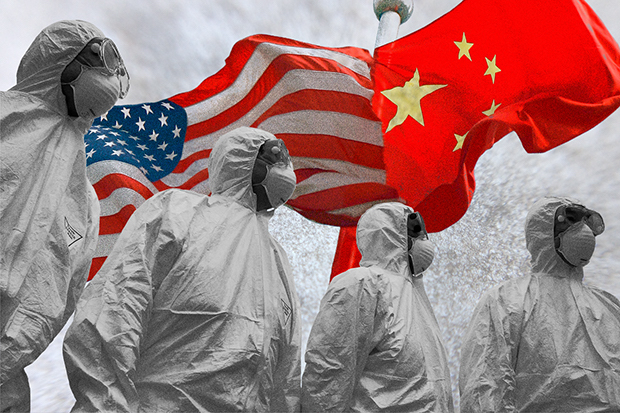How could better US-China relations help fight pandemics?
 Illustration/Jessica Tanny
Illustration/Jessica TannyIn the run-up to the presidential election, BrandeisNOW asked faculty to provide analysis and insight into some of the most pressing issues facing the country. This article is part of the series.
Infectious disease specialists warned for years of the ‘Big One,’ likely an influenza pandemic, that lurked on the horizon. But despite these looming concerns, we were still not prepared for the current outbreak.
One way we could have been better prepared was through the global health coordination that existed between the US and China. But this program was weakened after President Trump took office due to cuts to the global health budget.
How would this cooperation have helped stem the effects of the current pandemic outbreak and could it help to prevent the next one?
We have long recognized the importance of international cooperation in monitoring and controlling diseases that emerge in other parts of the globe and travel to our shores. The Centers for Disease Control and Prevention (CDC) has set up disease surveillance programs and trained public health epidemiologists in over seventy countries around the world, including China.
Beginning in the 1980s, the CDC began working with China to create a true public health infrastructure. They trained people in flu sample collection and started a flu detection program in China.
Following the outbreak of SARS, the two countries escalated their bilateral health program. By 2009, the CDC employed fifty people (both US and Chinese citizens) to monitor health in China. This was critical to CDC’s ability to get information about what was going on in China.
Much of this collaboration slowed down to almost a halt when Trump was elected president. His administration drastically cut the global health budget, forcing the CDC to make tough decisions that resulted in the reduction of CDC staff in China.
This disruption was likely aggravated by the tensions that developed between the US and China under Trump and the increased focus on isolating and identifying Chinese scientists suspected of intellectual property fraud. This allowed the novel coronavirus to emerge in a vacuum where the US had no ability to detect and help stem an epidemic emerging in the global community.
Going forward, I would urge any administration that assumes office in January to rebuild our cooperation on public health with China. This will be key to detecting future emerging infections and learning important lessons in treating these diseases.
Elanah Uretsky is an associate professor of international and global studies and the author of “Occupational Hazards: Sex, Business, and HIV in Post-Mao China.”
Categories: International Affairs, Research





